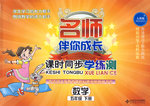题目内容
.The parents suggested ______in the hotel room but their kids were anxious to camp out during the trip.
|
C
【解析】略

 名师伴你成长课时同步学练测系列答案
名师伴你成长课时同步学练测系列答案One Saturday afternoon, a six-year-old girl went for a walk. She crossed a large area of grassland into the woods __36__ she realized that she was lost.
Sitting on a rock and __37__ what to do, she began crying. After a while. she__38__ to walk along a wide path lined with tall trees and thick bushes. __39__ it was getting dark, she saw a small, dark wooden house. She opened the door and __40__ stepped in. Suddenly, she heard a strange noise, and she ran out the door and back to the __41__. Cold and tired, she fell asleep near a __42__.
The girl’s parents were out and her dog, Laddy, was at home. Laddy __43__ that his mistress was in danger. He jumped __44__ a window, breaking the glass. He looked in the fields. But he couldn’t find his mistress anywhere. However, from the ground came a __45__ scent (气味) as he lowered his head. He __46__ the scent and walked across the grassland. Barking __47__ into the air, the dog __48__ through the woods until he found the __49__ . But the girl was not there, so he headed back to the woods. Much to his __50__ , he saw his mistress’ blue shirt in the distance. He __51__ over some bushes and saw the little stream, where the girl was __52__.When she opened her eyes and 53 her dog standing beside her, the girl said, “you 54 me, Laddy,” and she kissed him several times. Seeing their daughter and dog coming back, the parents burst into tears of 55 . That night Laddy had a hero’s supper: a huge meal of steak
|
1. |
|
|
2. |
|
|
3. |
|
|
4. |
|
|
5. |
|
6.A. trees B. woods C grasses. D. bushes
|
7. |
|
|
8. |
|
|
9. |
|
|
10. |
|
|
11. |
|
|
12. |
|
|
13. |
|
|
14. |
|
|
15. |
|
|
16. |
|
|
17. |
|
|
18. |
|
|
19. |
|
|
20. |
|
Traditional fairytales(童话) are being given up by parents because they are too scary for their young children, a study found.
Research uncovered that one in five parents has got rid of old literature such as Snow White and the Seven Dwarves and Rapunzel in favor of more modern books.One third of parents said their children have been left in tears after hearing the gruesome details of Little Red Riding Hood.And nearly half of mothers and fathers refuse to read Rumplesliltshin to their kids as the themes of the story are kidnapping and killing.Similarly, Goldilocks and the Three Bears was also a tale likely to be left on the book shelf as parents felt it forgives stealing.
The survey of 2,000 adults was completed to mark the launch of the hit US drama GRIMM ( 格林童话剧) , which starts tonight at 9pm on Watch, and sees six drama series based on traditional fairytales.
The survey found a quarter of parents questioned wouldn’t consider reading fairytales to their kids.And 52 percent of the parents said Cinderella didn’t send a good message to their children as it describes a young woman doing housework all day.
Steve Hornsey, General Manager of Watch, said: "Bedtime stories are supposed to calm children down and send them off to sleep soundly.But as we see in GMMM, fairytales can be dark and dramatic so it’s understandable that parents worry about reading them to young children.As adults we can see the innocence in fairytales, but a five - year - old child could take them too literally.Despite the dark nature of classic fairytales as we see in GRIMM, good will defeat evil and there is always a moral to the story."
The study also found two thirds of mums and dads try to avoid stories which might give their children nightmares.The most popular book read at bedtime is now 'The Very Hungry Caterpillar' by Eric Carle.
However half of parents said traditional tales are "more likely to have a strong moral message than a lot of modern kids' books, such as The Gruffato, The Hungary Caterpillar and the Mr. Men books.
1.Classical works for children are being avoided by parents they think .
|
A.they contain unmoral themes |
|
B.they are terrifying |
|
C.they encourage stealing, kidnapping and killing |
|
D.they are tired of answering questions |
2.What does the underlined word "gruesome" mean?
|
A.Very horrible |
B.Very amusing |
|
C.Very disappointing |
D.Very amazing |
3.Which stories are the popular bedtime stories that parents like to tell their children now?
|
A.Snow White and the Seven Dwarves and Cinderella |
|
B.The Very Hungry Caterpillar and Little Red Riding Hood. |
|
C.The Very Hungry Caterpillar andMr. Men |
|
D.Goldilocks and the Three Bears and Cinderella |
4.According to Steve Hornsey , adults can see innocence in a fairy tale but a 5-year-old child might ______.
|
A.think it is different from the reality |
|
B.dislike it because it is scary |
|
C.believe exactly what the tale says |
|
D.feel there is a moral to the story |